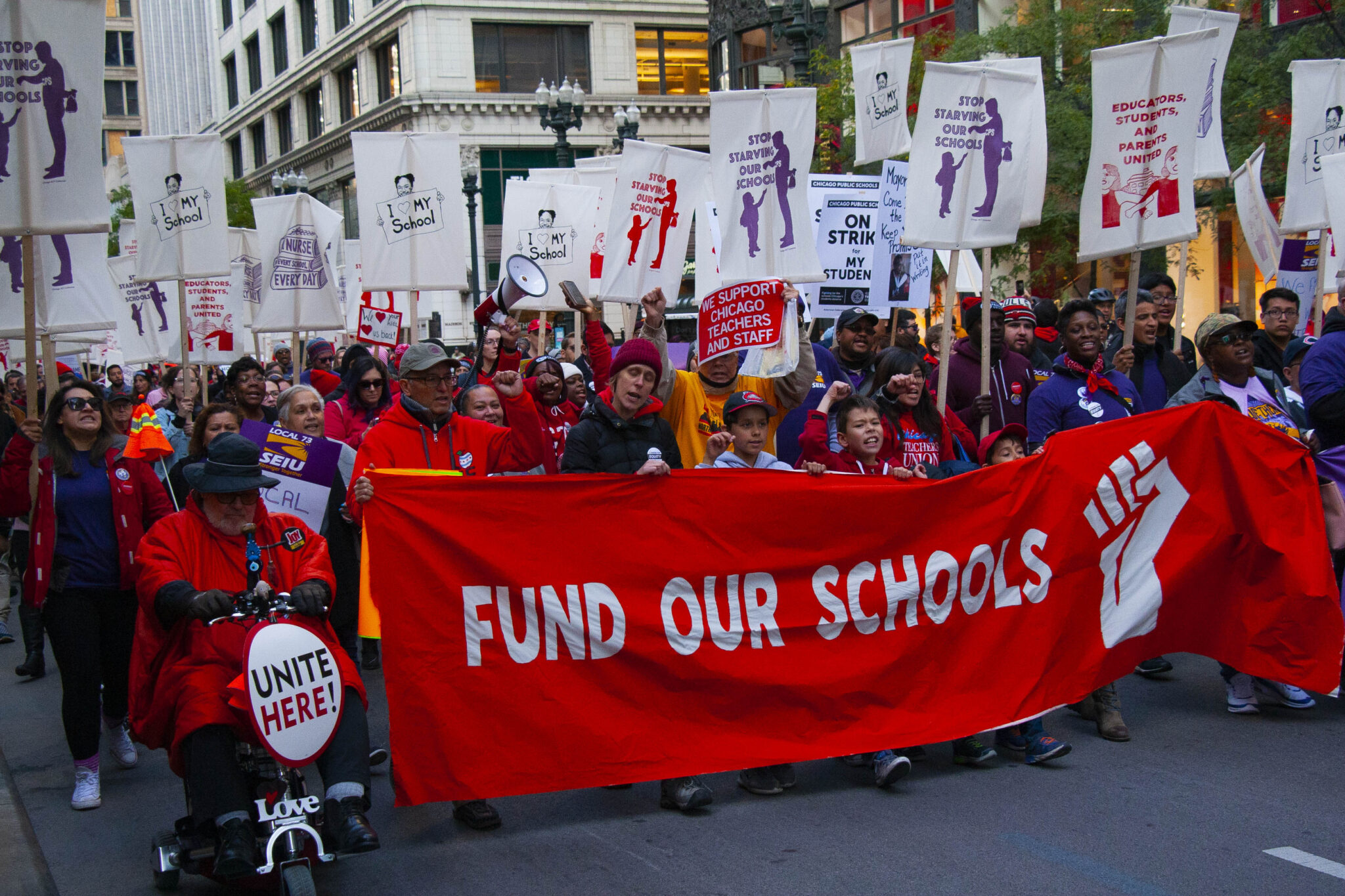
Mila Rostain is a student at Harvard Law School.
In today’s News and Commentary, the Chicago Teachers Union (CTU) reaches a tentative agreement on a four-year contract, the Service Employees International Union (SEIU) holds rallies and brief work stoppages in major cities after the detention of SEIU members, and Representatives Golden and Fitzpatrick introduce legislation nullifying President Trump’s executive order.
On April 1st, CTU reached a tentative agreement on a four-year contract with the Chicago Public Schools (CPS). The agreement includes average raises of 23% for teachers, including cost of living adjustments over the life of the contract. The agreement creates 90 new librarian positions and is expected to yield 400 new teacher assistant positions through improved staffing ratios. The agreement also cements sanctuary protections, gives employees leave for immigration matters, and guarantees the right to abortion coverage. In addition to terms directly impacting bargaining unit members, the agreement also includes $10 million for busses and uniforms primarily reserved for schools serving mainly low-income students. Both CTU and CPS lauded the agreement. Of the contract, CTU president Stacy Davis said, “our young people win, the people who provide their education win, the families that send them to the Chicago Public Schools win, principals win, the Board of Education wins, the CEO wins, the mayor of Chicago wins.” After passing the CTU’s House of Delegates yesterday, the contract will head to a ratification vote.
Following the detention of SEIU members Rumeysa Ozturk and Lewellyn Dixon, SEIU held rallies in more than a dozen cities calling for the protection of first amendment rights. Starbucks workers, members of Starbucks Workers United, engaged in work stoppages at locations from Iowa City to Oklahoma City in support of the day of action. In a press statement last week, April Verrett, president of SEIU, demanded that the Trump administration “respect due process, transparency, free speech, and basic decency when it wields its vast immigration powers.”
In response to President Trump’s executive order seeking to end collective bargaining for federal labor unions in agencies with national security missions, Representatives Jared Golden and Brian Fitzpatrick introduced bipartisan legislation that would overturn the order. The order impacted around 67% of the federal workforce. According to Rep. Fitzpatrick, the Protect America’s Workforce Act “restores a balanced, targeted approach—protecting bargaining rights where they pose no threat to national security and reinforcing their proven role in supporting morale, accountability, and effective governance.” Unions including AFGE, AFSCME, and SEIU all support the Act.






Daily News & Commentary
Start your day with our roundup of the latest labor developments. See all
October 31
DHS ends work permit renewal grace period; Starbucks strike authorization vote; captive-audience ban case appeal
October 30
Sweden’s Tesla strike enters its third year; Seattle rideshare drivers protest Waymo’s expansion in the city.
October 29
9th Circuit rejects challenge to NLRB's constitutional structure; preemption challenges to state labor peace statutes
October 28
Two federal unions oppose CBA cancellations, another federal union urges Democrats to end the government shut down, and Paramount plans for mass layoffs
October 27
GM and Rivian announce layoffs; Boeing workers reject contract offer.
October 26
California labor unions back Proposition 50; Harvard University officials challenge a union rally; and workers at Boeing prepare to vote on the company’s fifth contract proposal.